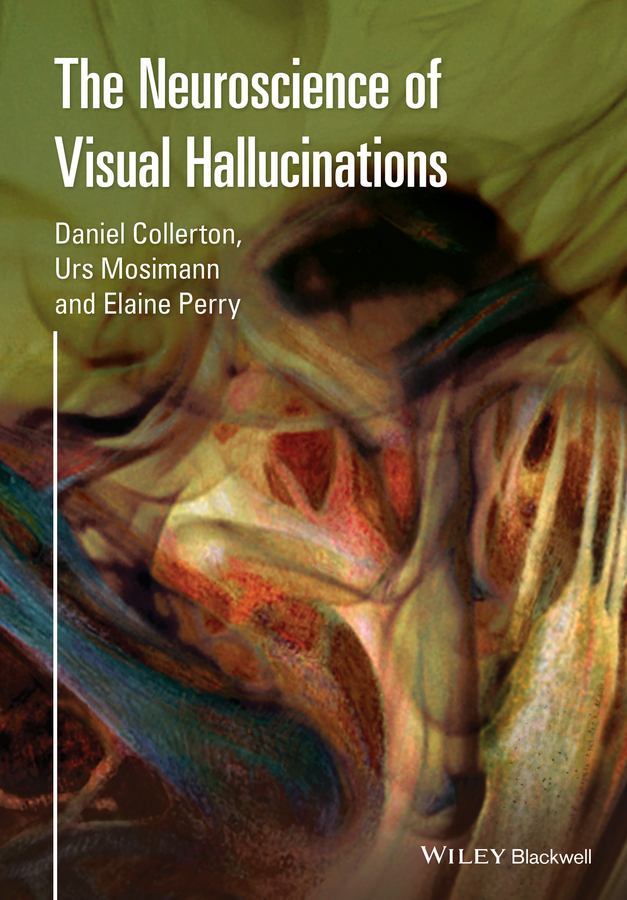Электронная книга: Daniel Collerton «The Neuroscience of Visual Hallucinations»

|
Each year, some two million people in the United Kingdom experience visual hallucinations. Infrequent, fleeting visual hallucinations, often around sleep, are a usual feature of life. In contrast, consistent, frequent, persistent hallucinations during waking are strongly associated with clinical disorders; in particular delirium, eye disease, psychosis, and dementia. Research interest in these disorders has driven a rapid expansion in investigatory techniques, new evidence, and explanatory models. In parallel, a move to generative models of normal visual function has resolved the theoretical tension between veridical and hallucinatory perceptions. From initial fragmented areas of investigation, the field has become increasingly coherent over the last decade. Controversies and gaps remain, but for the first time the shapes of possible unifying models are becoming clear, along with the techniques for testing these. This book provides a comprehensive survey of the neuroscience of visual hallucinations and the clinical techniques for testing these. It brings together the very latest evidence from cognitive neuropsychology, neuroimaging, neuropathology, and neuropharmacology, placing this within current models of visual perception. Leading researchers from a range of clinical and basic science areas describe visual hallucinations in their historical and scientific context, combining introductory information with up-to-date discoveries. They discuss results from the main investigatory techniques applied in a range of clinical disorders. The final section outlines future research directions investigating the potential for new understandings of veridical and hallucinatory perceptions, and for treatments of problematic hallucinations. Fully comprehensive, this is an essential reference for clinicians in the fields of the psychology and psychiatry of hallucinations, as well as for researchers in departments, research institutes and libraries. It has strong foundations in neuroscience, cognitive science, optometry, psychiatry, psychology, clinical medicine, and philosophy. With its lucid explanation and many illustrations, it is a clear resource for educators and advanced undergraduate and graduate students. Издательство: "John Wiley&Sons Limited"
ISBN: 9781118892787 электронная книга Купить за 15903.39 руб и скачать на Litres |
Другие книги схожей тематики:
| Автор | Книга | Описание | Год | Цена | Тип книги |
|---|
См. также в других словарях:
visual hallucination — Also referred to as vision. Both terms are indebted to the Latin noun visio, which means sight. They are used to denote a hallucination of sight. Historically, visual hallucinations have been divided into a multitude of types. Using their… … Dictionary of Hallucinations
acquired immunodeficiency syndrome (Aids) and hallucinations — The term acquired immunodeficiency syndrome, as well as the acronyms Aids and AIDS, refers to a collection of clinical symptoms and symptom complexes associated with specific damage to the immune system caused by the human immunodeficiency… … Dictionary of Hallucinations
solar wind and hallucinations — The term solar wind is indebted to the Latin noun sol, which means sun. It refers to a vast stream of electrically charged atomic particles, consisting mainly of protons and electrons from the Sun s corona, which are continuously flowing… … Dictionary of Hallucinations
antibiotics and hallucinations — The term antibiotic comes from the Greek words anti (against) and bios (life). It is used to denote a group of chemotherapeutic agents with varying chemical structures, which have the capacity to inhibit or abolish the growth of microorganisms … Dictionary of Hallucinations
form-constant — The term form constant was coined in or shortly before 1928 by the German American biological psychologist and philosopher Heinrich Klüver (1897 1979) to denote a recurring geometric element or form that can be observed during the initial… … Dictionary of Hallucinations
deafferentiation hypothesis of hallucinatory activity — The term deafferentiation is indebted to the Latin words de (away from, negation ), and affere (to take somewhere, to bring somewhere). The deafferentiation hypothesis of hallucinatory activity is a hypothetical model that seeks to explain the … Dictionary of Hallucinations
